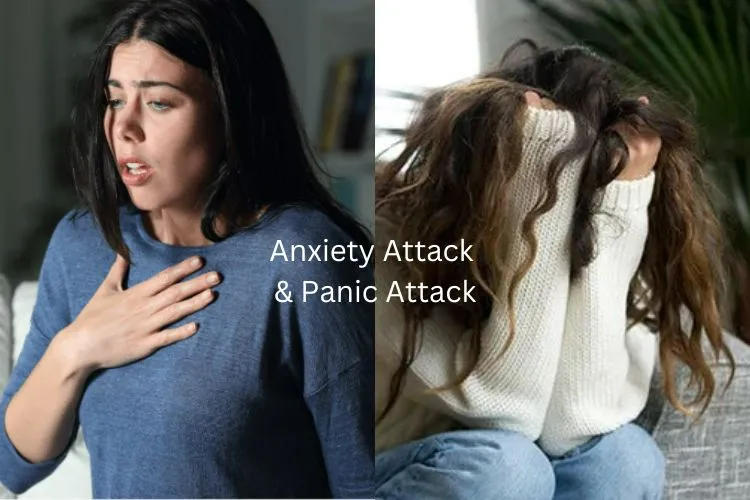As humans, we require anxiety. Why? Anxiety is awareness. It alerts us when we need to fight, run away, or freeze and prepares our body to act instantly and instinctively. We wouldn’t be able to protect ourselves from serious dangers to our well-being without anxiety. Fear is experienced over hypothetical threats that might or might not be reality-based or imaginary. Our thoughts have kind of evolved to be more vigilant about threat detection. They are more inclined to perceive hazards than actuality. In this manner, we ensure that nothing harmful to us is missed. Additionally, there is no “off switch” for our minds. As a result, worry can occasionally turn into a problem because it doesn’t provide us with important information and instead increases our distress and avoidance. When confronted with stressful situations, such as receiving a distressing medical diagnosis, all humans suffer anxiety. Other frequent anxiety-inducing triggers are social situations, marital issues, work stress, and money worries. Public speaking is another one. However, occasionally, stressful life circumstances cause startle panic disorder or anxiety disorders.
Difference between panic and anxiety attack
Rapid heartbeat, short breathing, and a general feeling of discomfort are all symptoms of panic and anxiety attacks. They often vary in intensity and underlying causes, though. Anxiety attacks are a reaction to a perceived threat, whereas panic attacks are frequently more severe and can happen with or without a trigger. The terms panic attack and anxiety attack are frequently used interchangeably, however they do not mean the same thing. These attacks come in a variety of durations and intensities. While panic episodes primarily impact people with panic disorder, symptoms of anxiety have linkages to trauma and other mental health illnesses, such as obsessive-compulsive disorder. The distinctions between panic and anxiety episodes are discussed in detail in this article.
Panic Attacks
- Typically take place with a trigger, however they are not required.
- Symptoms frequently come on suddenly.
- Disruptive symptoms may include a feeling of disconnection.
- Usually go away after a short while.
Anxiety Attacks
- A reaction to an impression of stress or danger.
- Anxiety symptoms could progressively worsen over time.
- The severity of symptoms might range from minor to severe.
- The presence of symptoms may last longer times.
it’s easier to understand the difference between panic and anxiety attacks when you discuss it with our online therapist.
What triggers anxiety and panic attacks?
It’s unknown what exactly causes panic and anxiety disorders. These conditions are probably brought on by a mix of genetic, medical, and environmental factors in people. Threats that are predictable or unpredictable might cause panic or anxiety episodes in people. These dangers could be actual or imagined. There are several causes of anxiety or panic attacks, including:
- Stresses in the environment
- Withdrawal from drugs or alcohol
- Chronic illnesses or prescription drugs for chronic discomfort and adverse consequences
- Phobias (excessive fears of objects or situations)
- Excessive usage of stimulants like caffeine is triggered by trauma exposure.
What is the cause of your anxiety? Find out from our online psychologists at Ganeshaspeaks.com
How to manage anxiety and panic attacks?
The following natural cures for stress and anxiety are suggested by the Anxiety and Depression Association of America:
- Consume a nutritious and balanced diet
- Manage or reduce stressors
- Limit alcohol and caffeine use
- 8 hours a night of sleep, plus yoga, deep breathing, or meditation
- Develop a network of allies
- Art work, journaling, thought checking worksheet
An anxiety or panic episode can cause symptoms that are incredibly distressing. Anxiety and worry can be lessened by acknowledging the circumstance and keeping in mind that symptoms will soon disappear. Use different techniques for breathing to the rescue. One of the most prevalent and worrisome signs of these attacks is difficulty breathing. During an attack, learning breathing control strategies can be beneficial. Progressive muscle relaxation and guided visualization are two relaxation strategies that can help with anxiety and panic attacks. Being mindful enables one to remain rooted in the present. People with anxiety who frequently worry about current and upcoming stresses may find it very helpful.
Experience Online Psychologist
Similar yet conditions
Fear, Agoraphobia, Mental breakdown, Low blood sugar, Heart attack, Asthma Attack all seem similar to panic and anxiety attacks. However they all are different interrelated concepts. For example agoraphobia is a form of anxiety disorder in which a person fears and avoids locations or circumstances that could make them feel confined, helpless, or ashamed. Similarly asthma attack and heart attack could look like anxiety attack but have different symptoms and signs.
Fear is a factor that troubles nearly everyone. No man is free of fear. Its intensity and severity is what makes a man either fully functioning or psychotic. Fear can occur from circumstances that are either real or imagined. Anxiety and fear go hand in hand. A lot of times people suffer anxiety attack has their fear becomes pronounced and out of control.
It is always helpful to visit a doctor when the condition seems to worsen and get a correct diagnosis than keep the guessing game on! Each and every life is precious and help is available. Be cautious, be careful.



